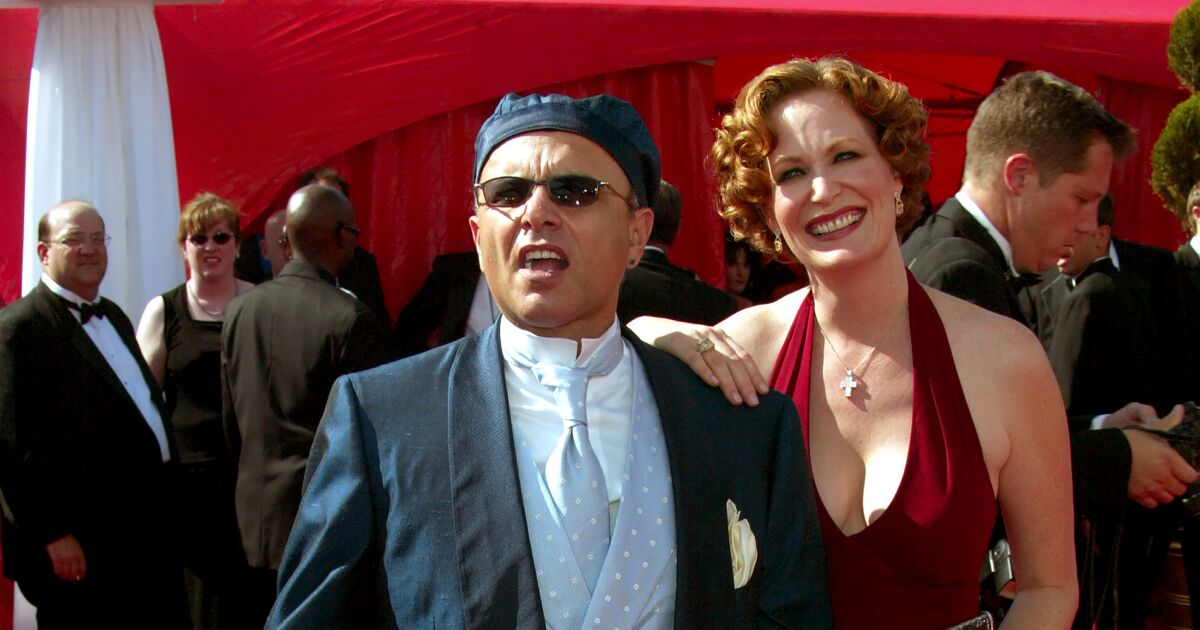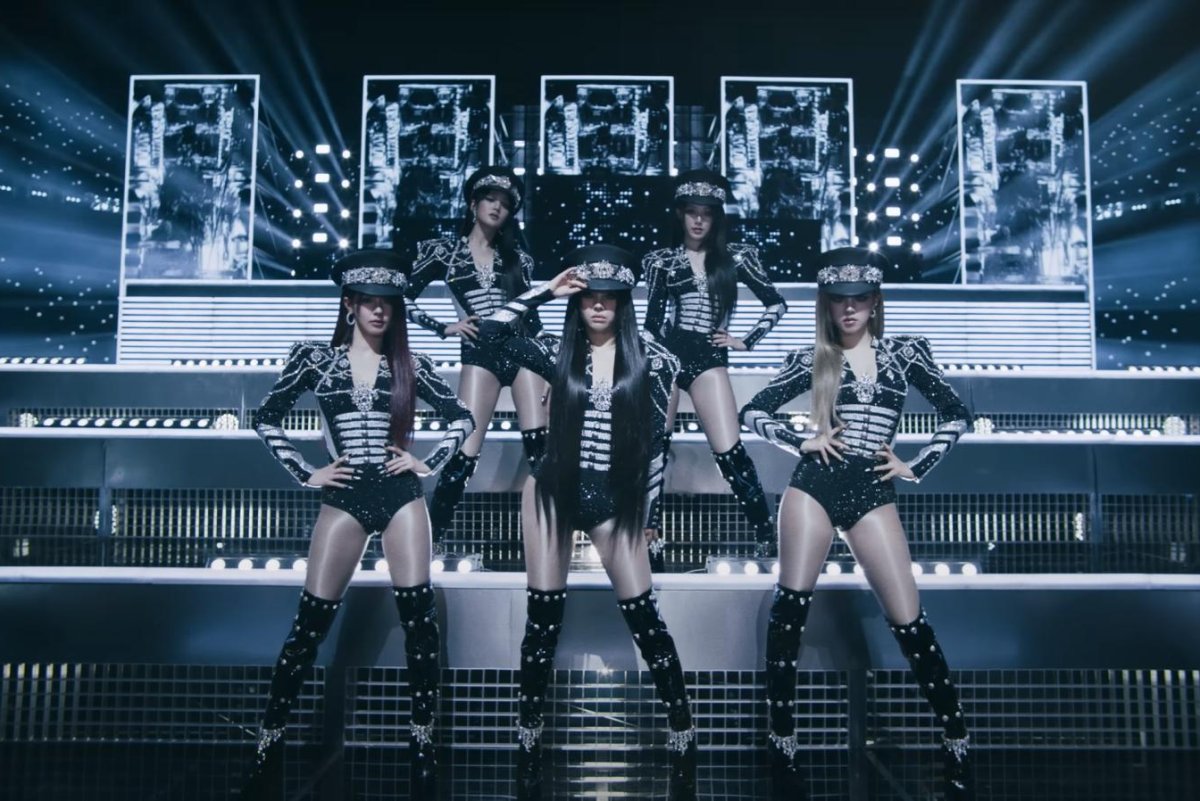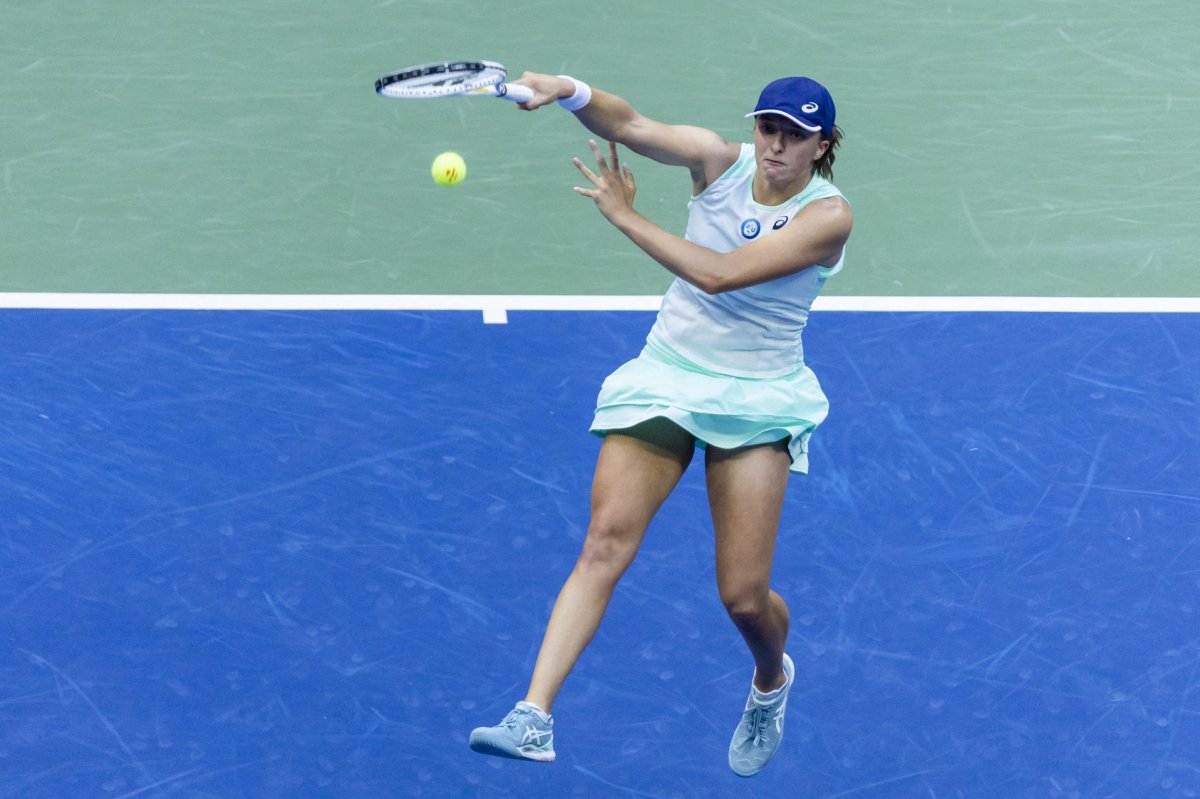A wide variety of networks, streamers and other platforms basked in their nominations earlier this summer, but that was less true 20 years ago, when broadcast networks dominated — along with a few choice spots for HBO, FX and A&E. But that doesn’t mean there wasn’t plenty of drama to spread around in the supporting categories, including a winner who’d walked out on his show in search of a salary bump, a breakthrough for a longstanding character actor — and a milestone for original cable programming. What did those categories look like in 2003? Cast a glance back with us …
DRAMA SERIES
The right trousers: Joe Pantoliano — often referred to as “Joey Pants” — won his first and only Emmy (thus far) for playing Ralph Cifaretto on “The Sopranos” (HBO), marking the first time HBO won in the category. Pantoliano’s win also solidified the series’ dominance that evening; his co-stars James Gandolfini and Edie Falco won lead Emmys for their “Sopranos” roles, too. A choked-up Pantoliano (who had never been nominated before) thanked his stepfather, who “saw in me the future that I never dreamt of and encouraged me.”
Pantoliano’s win blocked out four other previous nominees: his co-star Michael Imperioli, who would be nominated five times for his “Sopranos” role as Christopher Moltisanti and then win the following year; Victor Garber (“Alias,” ABC), who earned three nominations for playing Jack Bristow but never won; John Spencer (“The West Wing,” NBC), who received five nominations for playing Leo McGarry and won in 2002; and fellow “West Wing”-er Bradley Whitford, who was nominated three times for playing Josh Lyman and won in 2001.
COMEDY SERIES
Holdout hero: Winner Brad Garrett picked up his second of three ultimate Emmys (2002, 2005) for playing Robert Barone in “Everybody Loves Raymond” (CBS), which must have felt particularly sweet, following his very public salary struggle with the show. Garrett (who was also nominated for lead actor in a miniseries or movie for CBS’ “Gleason” but lost) had been the lowest-paid of all the supporting cast members on the show and staged a salary walkout, refusing to return without a raise. In his speech, he thanked CBS and the show producers for “not firing my ass.” His co-star Doris Roberts would also win this night as supporting actress.
It was a very full category, with six nominees (something not seen since 1992, when two of the seven noms were for guest roles, prior to the guest role category being created), including “Raymond’s” Peter Boyle, who ultimately earned seven nominations for playing Frank Barone on the show, never won; Bryan Cranston, who went on to win multiple times for AMC’s “Breaking Bad,” but here was on his second of three nominations for his “Malcolm in the Middle” (Fox) role as Hal, which never earned him an Emmy; Sean Hayes (“Will & Grace,” NBC), who’d won in 2000 for playing Jack McFarland, but not again; David Hyde Pierce (“Frasier,” NBC), a juggernaut who won for playing Dr. Niles Crane in 1995, 1998, 1999 and 2004; and “Frasier” co-star John Mahoney, who was nominated twice for playing Martin Crane but never won.
MINISERIES OR MOVIE
Visually stunning: Ben Gazzara won his first Emmy, for playing Nick Piccolo in HBO’s “Hysterical Blindness,” a win that came 17 years after his previous Emmy nomination. His frequent film co-star Gena Rowlands also won for her role in the film.
He beat out other greats, including Alan Arkin as Harry Rowen in “The Pentagon Papers” (FX), nominated for six Emmys over the years but no wins; Chris Cooper as Thomas Riversmith in “My House in Umbria” (FX), on his first and so far only nomination; John Malkovich as Charles Maurice de Talleyrand-Périgord in “Napoléon” (A&E), on his third and most recent nomination in the category (with one win, in 1986); and Peter O’Toole as Paul von Hindenburg in “Hitler: The Rise of Evil” (CBS). This would be his final nomination.



